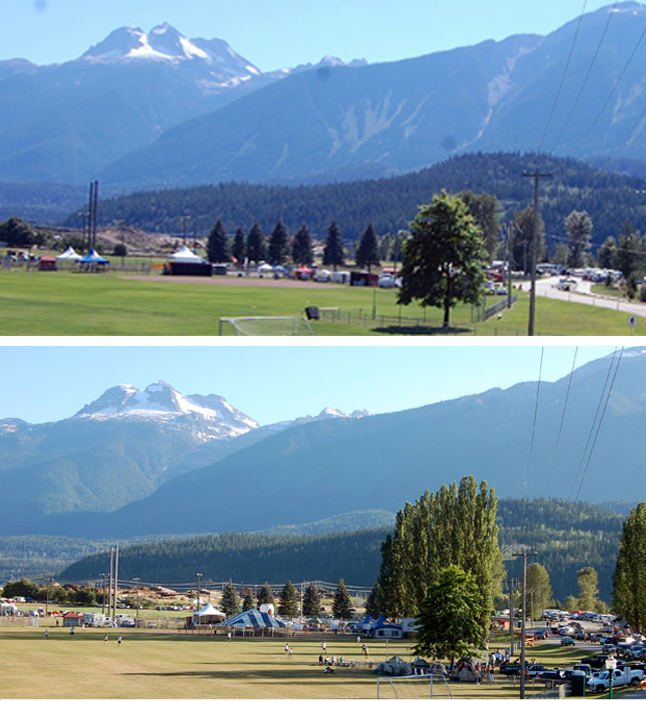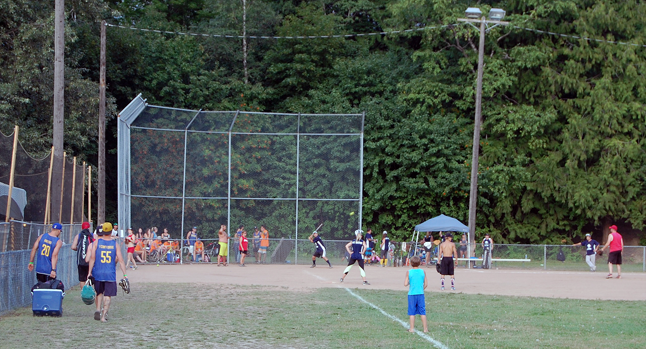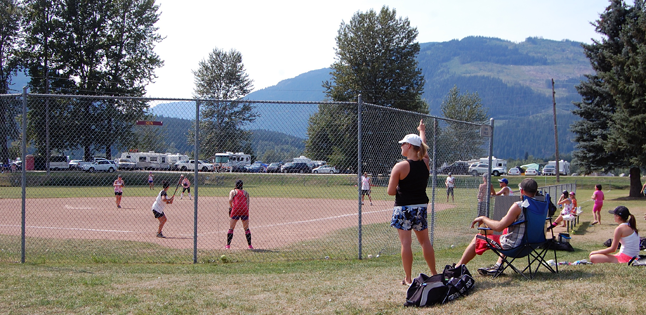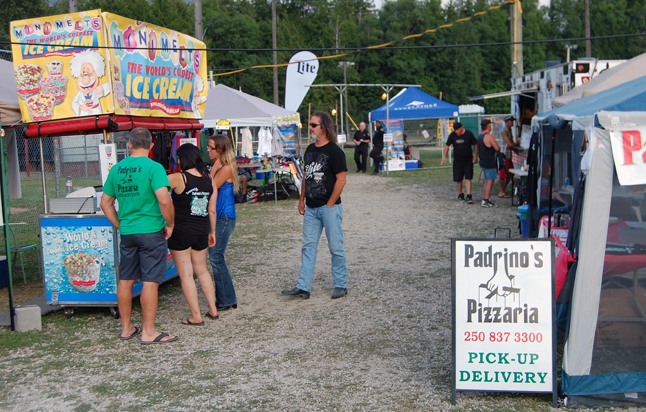
By David F. Rooney
For 28 years the Glacier Challenge has, in one guise or another, been one of Revelstoke’s key events. At its height it regularly attracted a couple of thousand people to town with 140 teams every BC Day long weekend.
Not that everyone in town welcomed the hordes of often-thirsty players. They didn’t. And 13 or 14 years ago some people even petitioned City Council to ask organizers who lower the decibel levels.
But things have changed. This year saw 63 teams come to town from across BC and Alberta. That’s not a good sign. Last year, 2014, there were 80 teams; in 2013 there were 87; in 2012 there were 93; 2011, 112 teams; in 2010, 126; and in 2009 there were 140.
“We think 80 is the magic number,” said Judy Goodman, who spent her weekend answering players’ and spectators’ question, shuffling score cards and, in effect, handling all the minutia demanded of a major event organizer.
Judy’s comment started me thinking about event renewal and everything associated with that. Because that’s really what we’re talking about. It’s a given that festivals and other regular events change over time. They can evolve and grow or decline and shrink and it can be disconcerting when realize realize your event has been in a steady decline. When faced with that it’s tempting to think that perhaps it’s time to cut your losses and wrap it up. But, depending on their strengths and willpower, organizers may also recognize that there is life after a decline.
Some of the drop in attendance may be due to the natural aging of its target population. But it’s not just age: participants’ expectations about everything from services such the beer garden, vendors, food services and even entertainment have changed over time.
About eight or nine years ago attendance at the evening beer gardens and concerts began to decrease. Ball players demonstrated a reluctance to purchase a beer garden bracelet for the privilege of paying what many thought were exorbitant beer and cooler prices. Instead they began stocking up on cheaper beer and booze at local liquor stores and staging more intimate parties with friends in their campsites. They also appeared to be more inclined to listen to their own music at these on-site parties as opposed to going to listen to bands they were not necessarily interested in.
It could take some masterful marketing work to reverse the enrolment slide. Fortunately, Revelstoke has a lot to work with: a 28-year history of staging largely successful tournaments, a beautiful downtown and generally tolerant population, downtown concerts, excellent art galleries and a number of other attractions that could help bring more teams to town. This is also a very safe event. Serious injuries and crimes are rare, except for the annual cooler thefts by gormless teens.
This just a part of the formidable and knotty bundle of demographic, social, cultural and economic issues that challenge Glacier Challenge organizers who want to reinvigorate this event. It can be done. I’m confident it will be done.



